
Jeremy Dennis
Location: The interweb. Or Oxford, England, if you prefer. Oxford is very near London, so a lot of my strips feature London -- but it is not my home and when I'm there I'm there as a stranger.
How would you describe your art: I'm a comics artist, which to me means combining words and pictures to create a sequential story. It covers quite a broad area; adapting books, photograph sequences, websites, illustrated stories, and comics, of course. Currently working on: The weekly strip, C. Evidence, Xeno[subtext]Cide, The Pillow Book of Siouxie Shogun, Twisted Toy Fairy, Blanche Goodchilde Scourge of the Seven Seas, the Googolplex, Changeling 72 and probably a few others. I find it necessary to have a lot on the go at once, though not everything gets finished of course. You can currently see my strips in Pancevac (a Serbian newspaper) and Naked (a British magazine), and there's an exhibition called You/Me (an American mail-art expo) coming up which should contain some work of mine.
Day job: I work for the government, editing a young person's website.
3 Likes: Beautiful old books, useless shiny things, discarded novelties and toys.
3 Dislikes: Ill-informed arguments, grudging obligations, being backed into a corner.
Daily Inspirations: Looking up; roofs, cranes, trees, towers, planes and the sky beyond. Lots of interesting things to see by looking up.
Street art; I walk into work via busy urban streets, through a constantly changing commercial, social and subversive wallpaper.
People; through social contact, books, weblogs, overheard conversation, friends, acquaintances, gossip and more.
People you admire: Alison Bechdel, Greta Garbo, Joseph Cornell, Arthur Tress, Germaine Greer, Angela Carter, William Burroughs, Aphra Behn, Aubrey Beardsley, Virgina Woolfe, Eddie Campbell and I'll stop there or I'll be going on all day. I like my life to be crowded with heroes.
Superpower you would most like to possess: The ability to know whose fault something is without a shadow of a doubt, and to be able to instantly mete out appropriate, poetic and savage punishment.
www.alleged.org.uk/jrd
http://uk.geocities.com/cleanskies
- - -
This interview took place with Jeremy in stages during January - March 2005. All images reproduced with permission © Jeremy Dennis
- - -
The ‘Art Manifestation’ on your website provided me with a huge insight into your art as I prepared these questions, (and has given me a *lot* to think about for the zine as a whole), in terms of it providing a personal reaction to how art influences and effects artist’s lives.
Why did you write the Manifestation?
To clear my mind about what I was producing and why.
Is it a reaction to being an artist or more of a reaction to the expression and creation of art?
There is a duality at the heart of the manifestation, but it isn't quite that. The manifestation refers to the experience of art both as a creator and as a consumer. It looks to justify not only creating art, but also experiencing (consuming) it.
The Art Manifestation:
Art exists for all. Art should be available to all. Art is a basic human right. Art is an expression of the shape we live in. Art reflects the state (of mind) that creates it. Art stamps our existence on the mindscape of our world. Art is a territorial act. Art asserts our dominance over the natural world. Art is the survival-act of the leisured world. Art insists that I exist. My art matters to me and your art matters to you. You are your own most important audience. Art scribbles patterns onto a chaotic world. Art is the shapes the eye of the perciever sees in tea-leaves, shadows, reflections in moving water. Art lives in the eye of the perciever and dies in the hands of the creator. Art hurts me more than it hurts you. Art burns pain into light. Art is surgery for the soul. Art is an act of aggression against the psychospere of the world. Art bites. Art shreds. Art presses an eager tongue into the private parts of your mind. Art remembers what you have forgotten. Art fills in the gaps in your memory. Art sees you through the frost on your windows. You can't hide from art. Art catches your eye across a crowded room. Art loves you with the sick devotion of a stalker. Art follows you home at night. Art keeps trying to get your attention. Art tracks you down and corners you. Art is the enemy. Art stops you getting on with life. Art makes unrealistic demands. Art insists on heaven, true love, sunshine, everything. Art eats the mind. Art opens the ground under your feet and the sky over your head. Art hates you. Art builds your mind around you. Art holds your hand and points to giraffes and fire-engines. Art closes your eyes and only shows you itself. Art fucks you up and means it. Art separates you from your life. Art cuts you up. Art reassembles you. Art doesn't care where the pieces end up. Art doesn't care about you. Art exists separately from you. Art opens its legs for strangers and tells you mockingly what it was like for them. Each act of art murders a piece of yourself. Art is a social disease. Art is infectious. Art is the cancer of personality. Art (de)rides on the sicknesses of society and reinfects you with the pain of life. Art is pointless.
The Manifestation seems to highlight the pros and cons of being an artist: ‘Art insists that I exist’ ‘Art remembers what you’ve forgotten’, ‘art holds your hand and points to giraffes and fire engines’ vs. ‘art is pointless’, ‘art hurts me more than it hurts you’, ‘art stops you getting on with life’
Hmm. It's interesting to see what you interpret as negative and positive. People often forget traumatic and disturbing experiences, after all, and this actually can be (no matter what psychologists insist) quite healthy; and then, through art, you find yourself dragging through the same old mud again and again. Depressing films about childhood traumas, for example; video art about alienation or bullying.
Similarly, "art stops you getting on with life" was to me a thoroughly positive statement -- the astonishment of viewing art provides a complete stopping point, which can be both restful and revelatory. The pointlessness of art reflects a freeing from purpose, allowing the viewer's purpose to become primary, and so on -- your reading of the (pointless) manifestation providing it with a point, for example ... and explaining it actually lessens the impact, so I'll stop there.
You once said that ‘I am an artist, which means that pretty much everyday I make something of no practical value’. Did you mean this?
Yes. Although some of it turns out to have monetary value or create a value in its readers/viewers, and certainly things take me time to make, and materials cost money, while I am making them the things that I make are (and have to be) impractical, irrelevant and valueless. I'm sorry, that's a bit oxymoronical. I mean, obviously, I charge for work. But while I'm working I have to forget about that or it distorts things.
What is your current relationship to the art that you are producing?
Co-dependent and abusive.
The thing that I love about your art is how approachable it is, which I think has a lot to do with your production methods. For me, it’s like seeing a great ‘punk’/DIY band, who make you think, ‘hey, I could do that’. Your work is very inspiring in that way. Do you receive much feedback from your audiences that reflects this sentiment?
I do, and I like that. I like encouraging other people to make stuff; I like art where you can see the marks and process that went into its progress. And I really like it when people send me their minicomics, zines, whatever. I probably used to get the most when I was working on a listing service for UK queer/feminist zines called QZ, I got masses of gonzo stuff back then, but I still see a fair amount.
Is this a sentiment that you find reflected more during the workshops that you run at events such as Ladyfest?
My workshops are always for "all levels", pro to absolute beginner. Start by telling me you can't draw, and I'm likely to end up making you do just that. The more varied the group, the better I like it. This year I've found myself leading full-time professional comics artists, hyperactive 12-year olds, nervous adults who'd never drawn, twitchy twenty-somethings with trouble believing in their own talent, and a precocious 17-year-old who'd just published his first graphic novel. They all ended up doing stuff they'd never done before, and (crucially) they all finished something they could point to and say, "I did that." So the DIY thing both matters and doesn't matter. If I'm teaching a method, that's it, but plenty of people coming to my workshops aren't in it to become small press comics creators. They're interested in creative techniques, story-telling methods, editors and writers looking for ways to understand the arts side of the work better, people who want to use comics as a way of exploring themselves or their own lives, and plenty of people just after a bit of fun.
Balancing all these needs is part of what running a workshop is about.
How have you been involved with Ladyfest?
I was in the big Ladies Comics Exhibition that toured the UK last year, and I've run some comics workshops at ... um, Bristol,Manchester and Dublin. The Dublin one was my favourite, story-telling wise, but Bristol actually had a photocopier onsite so we couldreally get into the nitty-gritty of small-scale production. Manchester had the best international spread but all the running around meant we didn't really end up swapping addresses, which was a shame ...
Developing what I was saying before, about your production methods, I find it really interesting that you advocate the useof cheap cameras to make photographic art. In comparison to ‘high art’ circles, this could be seen as blasphemous, as the ‘quality’ of art there seems to stem from bigger, better, and pricier production methods and equipment as a qualifier of ‘good’ art.
Plenty of photographers use cheap cameras, like an artist might use a sketchpad, or for the unique effects/qualities they have. Some cheap cameras (Lomos, Holgas and Dianas) are so popular they've become expensive again. That said, I don't use them for that ... I'm more after something that gives minimum intervention between you and the subject and a broad margin of error. Which probably isn't in tune with high art photography -- but I don't think I'm really a photographer. Just arsing around, really.
You seem to be twisting the aesthetics of artistic creation, to question the worth of art (both in terms of what is produced, and the price of its production), as well as the accessibility of art (which is often deeply entwined with affluence), and the ease of how it can be made.
When I was a kid, I had a 110 camera I got free by collecting coupons off cereal packets. I bought the cheapest film I could find(99p) and then sent the finished film off to Supasnaps for developing, which cost me £1.99. The prints came back with a free film,to keep me hooked. My technique hasn't substantially changed since then ... books on photography unnecessarily mystify the process, I think. I mean, I've done more complicated cameras, setting up shots, developing my own prints, all that, but it's just not what I'm interested in. Nor do I think you have to be, to take photographs.
Is all of this intentional?
No, what I'm mostly interested in is the freezing of time (which is also a feature of comics) and the photographs you didn't see (their qualities only become apparent after development). Both of those things you can shoot with anything, but it helps if it shoots fast and is a bit broken.
Does using cheap cameras free up your photography?
What it mostly frees you from is the fear or your camera being nicked.
What do you think the qualifiers of ‘good’ art are, if the criteria of money and professionalism are removed? In other words, what do you think makes your photographs, and comics ‘good’, (as I believe they are), despite your alternative production methods?
Good art, bad art ... not very precise terms, don't like them -- there's a bit of a conflict between the stuff I like the best (what I want) and the stuff people most respond to (what they want) ... and then you can look at how many people like it, how much money you can get for it. Other, more subtle measurements, like compliments ... best not to think about good and bad. For me, anyway. I just get confused.
You are best known, and loved, for your comics, which cover such wide-ranging themes and narratives. What spurs you to comment on particular themes and narratives in your illustrations?
There are things I have to organise, in my mind, get into a pattern where they make sense. Stories that strike me, or which I want to pass on. Stuff that makes me laugh. Gossip, dreams, idle thoughts. Important stuff like that.
Presenting many of your comics in an A8 format means that many conventions of comic book writing and drawing, whereby elaborate fantasies are played out as the ‘story’, develops throughout the comic, are abandoned, as the space and length of the comic restricts this. Do you use the ‘minicomic’ format to allow you to get to the point of your narratives quickly, and make a sharp impact on your audience? Or are there other reasons for your choice of comic size?
It fits in your wallet! ... and they are so sweet .. and also small enough you can just give them away. 16 pages is longer than a weekly strip, I don't find them constraining. If the stories are longer, I put them into longer formats.
Creation of comics isn’t your only involvement with alternative comics; you are hugely involved with the promotion of comics. How did the Caption convention come about?
Not hugely, I'd say. I used to do more. Caption was an idea cooked up by a bunch of friends to do a convention on a shoestring. At the time (late 80s) everyone thought of comics conventions as huge glossy affairs full of publishers and stars and money. We thought comics were more scruffy and haphazard than that ... and also that beer was more important than batman standees. So we made a convention that reflected that. (You can read a lot more about caption on www.caption.org if you're interested -- including several quite different histories)
You also co-edited QZ, a UK listing of gay, queer, fem and related zines. How did you become involved with this? How important are such zines to you?
We did it for about two years. It was inspired by queer-zine explosion (a US queer listings zine). I got very interesting post during that time. A bit too interesting, to tell the truth ... and anyway, the internet came along around then and listing zines were no longer as important. Around the time we were doing it, though, it was a real lifeline for isolated, often very young, queers, a way of expressing themselves and meeting other people like themselves instead of trying to conform to a straight society -- or a local gay scene that was often just as conservative and constraining.
Do you think these zines provide a much truer and honest depiction of British queer lives than that of which is presented by mainstream media?
Yes. But TV is always going to have an easier time with showing the conformists.
Is this an intention of your comics too, to depict lesbian lives in a truthful manner: representing regular lives that are often marginalized and misinterpreted by media, and art?
The soapy sort of comics I used to do (Rent, 3 in a Bed, Gros Anita) were very much about that. It's kind of pathetic, but real, true, gritty stuff is what I find exciting. The minuteness of life, the details. But I run very fast and loose with the truth in my autobiographical comics.
What are your thoughts on the representations of queer women’s lives present in contemporary art?
I find pretty much all representations of women’s lives in mainstream media -- gay, straight, queer, whatever -- alienating, and the reason why is pretty much in the question. All these identities are sexual identities which depend upon relationships with other people, and being a wife/girlfriend/lover/etc. is not the major work in my life ... occasionally I'll spot a single woman who isn't defined by her longing for (read: failure to get) a man, or a lesbian not defined by her hatred of (read: failure to interest) men but they're usually background characters, a minor face that can be killed early, a loose thread that won't get tied up. They're the people I end up identifying with; they don't say much, this isn't their story. They live in the margins. Marginalized.
To what extent does zine culture influence your comics, in terms of themes and production methods?
It's a comic and it's on the web, but I think that perhaps The Weekly Strip is not a web comic; you can still see the paper that it was drawn on, and the comics that inform its aesthetic and presentation are mostly paper comics, some of them quite old now. I do print-out versions that I sell and swap as if it were a zine, too; little booklets with names like "Feeding the Geese" and "Mad Hair Day". Photocopied at the moment, though I expect I'll switch to print-outs soon. It's kind of nice just how "desktop" publishing is nowadays, but I miss the photocopiers I used to use and abuse back in days when I did more print-runs.
Why do you split your artwork into two different camps, separating your comics from your “serious”, “weirder” stuff on two different websites (‘Alleged’ and ‘Clean Skies’)?
Serious? Did I call it serious? It doesn't sound like the sort of thing I'd say, as I take comics and zines very seriously indeed. Weirder sounds about right, I actually hive off the other stuff because the comics are really the serious work, the stuff I'd anticipate that other people might want to see (not that any of the weekly strip is really written in anticipation of an audience) and the photos and narratives and so on are more the things that happen along the way to the comics ... which isn't to say they're better or worse or less important, but they don't quite exist in the same continuity.
Do you see your comics as less ‘serious’ than your photography, narratives, installations, illustrations and collages?
Well, obviously I don't, but perhaps what you're getting at here is, do I think other people might take the comics less seriously simply because they're comics? Well, possibly. I know several people who simply can't read comics -- or who find the effort required to read both pictures and words at once not to be worth the reward. But, on the whole, comics and illustrated or picture novels aren't unknown as a method of expression nowadays, and most UK bookshops contain at least some.
What does the term ‘serious art’ mean to you?
Something to move away from.
How easy do you find it to present yourself in your ‘hemi-demi-semi’ autobiographical Weekly Strip? I’ve always had a hang-up about autobiography on the web…you have absolutely no idea who is viewing, or observing. It takes a lot of guts to openly present yourself and your life and experiences to a global audience.
Does it? I think it takes more guts to tell someone something face to face. Presenting an issue through theobscuring layers of narrative and imagery and metaphor and deliberate obfuscation that make up a comic strip is almost an act of cowardice, a way of carefully depersonalising, controlling and ordering what might otherwisebe honest feelings. Sometimes I worry about displaying my life, or what people might think of me, or who mightfind me. Everyone does. But if you worry about this too much you never meet anyone else. Also, wheneversomething makes me feel uncomfortable, I just draw a sarcastic crow or a big pile of jellyfish or a hole in theground instead. Some of my strips are so deeply coded probably only I can understand them.
How stressful is the upkeep of the Weekly Strip, are there some weeks where the last thing you want to do is prepare something for the strip?
There are weeks I don't feel like doing a strip and I don't do one (or I do something else). Far more often,however, I want to tell more stories and run out of time. I have a big shelf of un-achieved scripts; many of them will never be finished, as the moment passes and I then have something else that needs writing. It's a shame, but there's not a lot of point harping on in your mind about the ones that got away.
Is such relentless pressure to ‘perform’ part of your feeling behind the Art Manifestation quote that‘art stops you getting on with life’, or do you see the necessary constant creative process the driving force behind your life i.e: ‘art insists that I exist’?
Down with either/or! I appreciate that I'm often self-contradictory, but I don't make much progress when I'm trying to force art (or anything, really) to be one thing or another. At least potentially, and, a lot of the time actually, it's both. Consider the dilemma of the teenaged artist whose parents want them to stop mucking around and get on with their life. The parents have a point -- there are faster and more reliable routes to success (love, sex, security, money) than becoming an artist, and hoping someone notices or cares. On the other hand, the artist (and maybe the parents, too) hold that the art is a part of them; that they would have to be someone different to stop. The continued production of the art is the expression of this individuality, the definition of the artist self. But, at the same time, what they're doing isn't directly related to getting on in the world. The choice of becoming an artist isn't dichotomy but paradox; art sits on the point of balance between either/or.
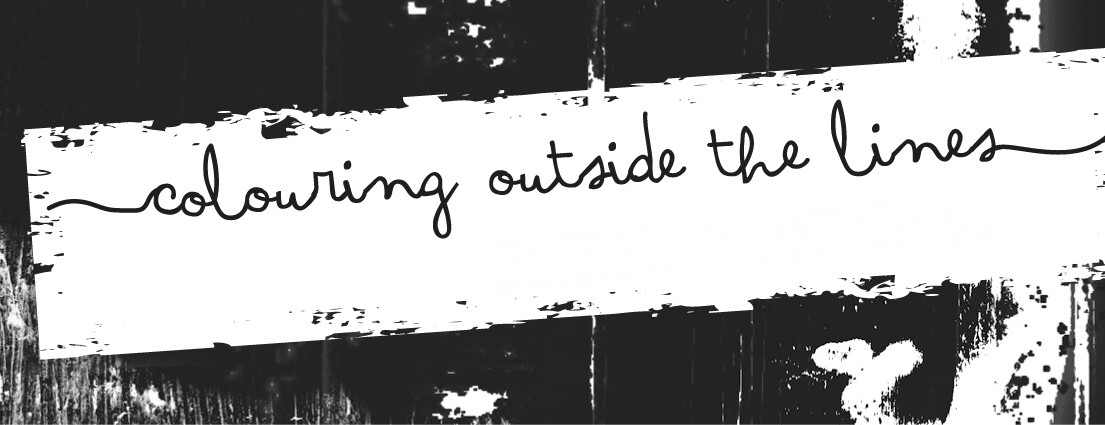





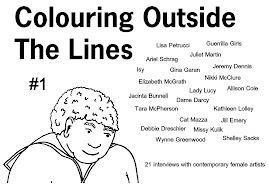
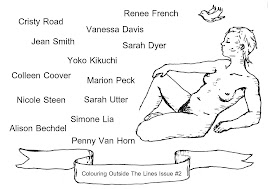

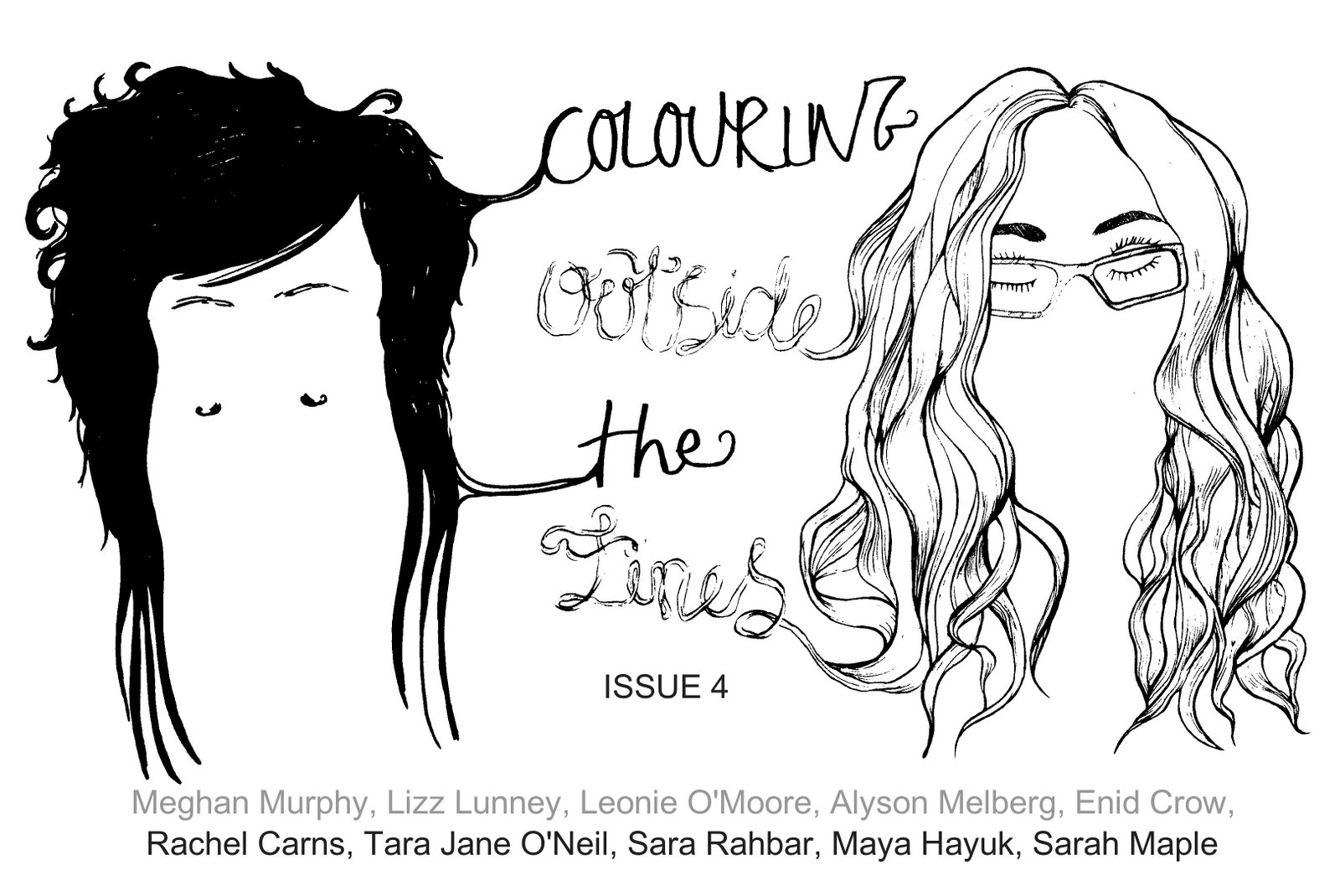

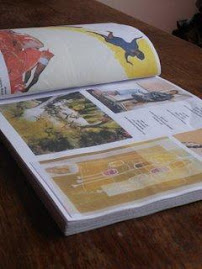



No comments:
Post a Comment